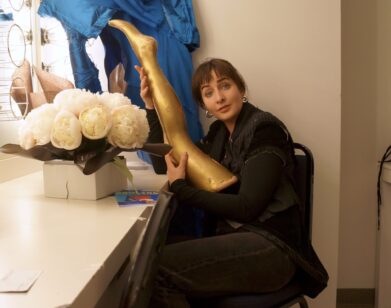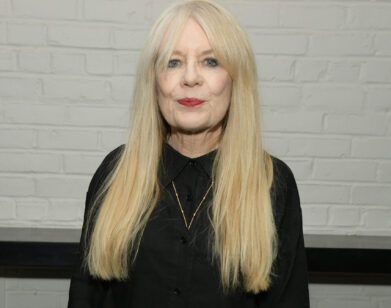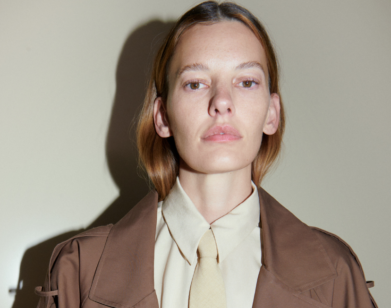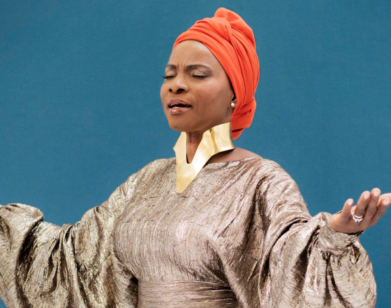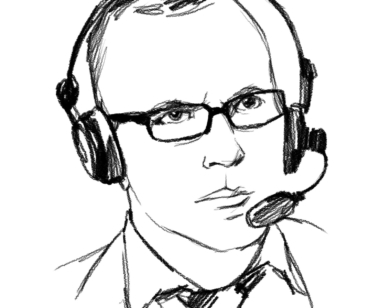Ask A Sane Person: David Byrne On Two-Party Systems and Escapist TV
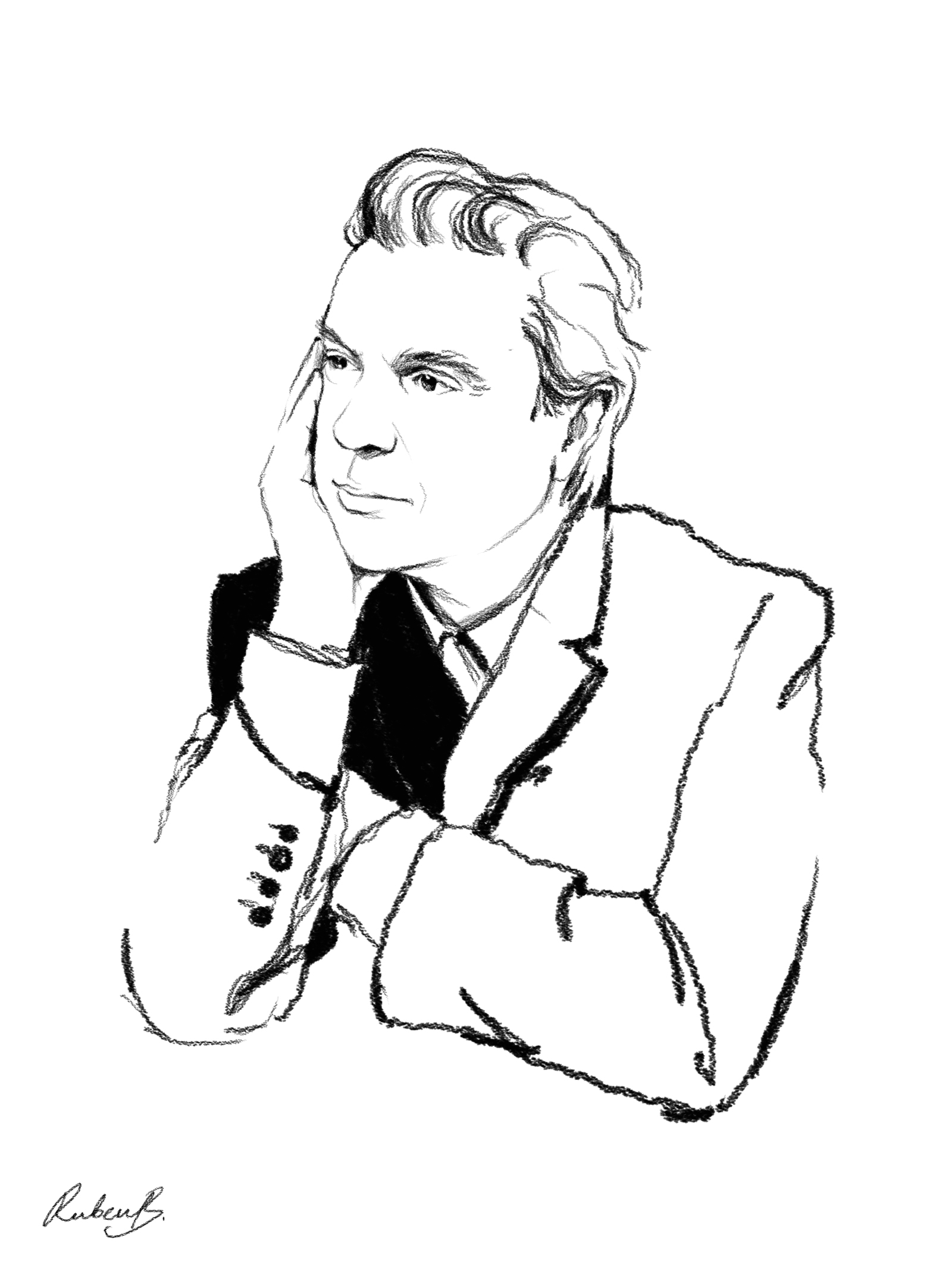
David Byrne recently started “Reasons to Be Cheerful,” an online magazine devoted to culture and thought, with a special focus on environmental policy. The site has just mounted a new series devoted to making a difference in the time of Coronavirus called “Now Anything Is Possible.” And with the iconic musician and artist on your side, maybe it is.
———
INTERVIEW: Where are you and how long have you been isolating?
DAVID BYRNE: I’m in Manhattan, isolated since March 16. After five weeks alone, I went to visit my daughter and grandson upstate, but I’m back.
INTERVIEW: What has this pandemic confirmed or reinforced about your view of society?
BYRNE: We’re seeing our best and our worst. Researchers, scientists, health care workers, MTA conductors, grocery store staff, and many more are behaving selflessly and enabling the rest of us to survive as best we can. We see some world leaders making intelligent and informed decisions. But at the same time, the pandemic has pulled back the curtain on the meanness, racism, and inequality that pervades the U.S. I should note that not every society has dealt with this in the same way, though all are equally susceptible. I swing from being hopeful and encouraged to angry and frustrated.
INTERVIEW: What has this pandemic altered about your view of society?
BYRNE: The pandemic shows that all parts of society are interconnected, that places whose political and social institutions have fostered trust—like the state of Kerala in southern India—are proof that when these parts function it is because of a network. The places that are doing better tend to emphasize cooperative policies and behavior across the board, whether in health care, safety nets, or education. This confirms to me that society is an ecology, and that no part can function alone. Freedom to do whatever you want doesn’t really work in a situation like this.
INTERVIEW: What is the worst-case scenario for the future?
BYRNE: Untold economic pain and personal suffering will reshape the future of many countries, not in a good way. In other places, things will be tough but people will emerge more resilient.
INTERVIEW: What good can come out of this lockdown? Are there any reasons to hope?
BYRNE: When one looks at the countries that are flattening the curve and some that are even keeping their factories open, there is hope that the rest will take inspiration. Be open to ideas from elsewhere. Policies that were once deemed too extreme might now be within the realm of possibility when we see other countries managing to beat this thing. I think the ethos of “hyper individualism,” as it’s been called, especially in the U.S., will get a more critical look.
INTERVIEW: Do you predict an outcome of a more inclusive globalism or more nationalism and isolationism?
BYRNE: I’d hope for a more tempered, fairer, and regulated globalism… but, yes, the excesses of global capitalism have inflicted a lot of pain, which naturally results in a backlash. But that didn’t have to happen. Business will have to play nice if it is to regain people’s trust.
INTERVIEW: More socialism or more authoritarianism?
BYRNE: I think we’re going to see both. Authoritarian regimes can act quickly in emergencies, and, if they are somewhat benign, be fairly effective. That’s a pretty strong selling point. But authoritarian governments can go either way—there’s no guarantee they’ll be benign. In the long run I suspect that places with more social services, regulations to protect citizens, and safety nets will do better. In Germany, there was testing at scale and many factories are open. But divisiveness and partisan politics cripples intelligent responses to this. The state of Kerala has done an amazing job, but they do not in general vote for [the Prime Minister of India] Narenda Modi’s BJP party, so Modi wants them to fail or at least be more divided. We should eliminate political parties. Seriously.
INTERVIEW: On a scale of 1 to 10, what is your level of panic about the current state of the world?
BYRNE: I fear that countries like the U.S., with high levels of inequality and dysfunction, will devolve into partisan and sectarian fighting, which will result in a desperate struggle for survival. This doesn’t have to happen, but 40 years of policies have led to this dysfunction and inequality, and it will take a strong team to respond to the will of the people and turn things around.
INTERVIEW: What is your ultimate novel, film, or album for self-isolation?
BYRNE: I’ve been reading stories by Ted Chiang and Samanta Schweblin—both create imaginary worlds. I’ve watched almost all the old Hitchcock movies. And I admit I consume plenty of escapist fluff: The Mandalorian, Westworld, Star Trek: Picard.
INTERVIEW: What’s one skill we should all learn while in quarantine?
BYRNE: Cooking! I myself start by following recipes, but once I feel that I know the principles behind making something, I can begin to substitute and improvise. There have been some failures (a mushy lentil parsley salad, for example—ugh) and some happy surprises (leftover fish broth with miso, mushrooms, noodles, and eggs was delicious and I just made it up!).
INTERVIEW: Describe the current state of your hair?
BYRNE: Longer. I’m not practiced at getting the right lighting and angle for calls and such, but I try, a little. Some days I suspect I look a little raggedy.
INTERVIEW: What has been your daily routine during this time?
BYRNE: Probably the same as a lot of folks. I occasionally shop for groceries. I do endless Zoom calls. I do some stretching and go for long bike rides (with a mask), often with fellow musicians and other friends. I read more. I watch movies and shows. I work on music and the “Reasons To Be Cheerful” journalism project with my collaborators. Of course, like everyone, I have to cook more than ever—luckily I enjoy trying new recipes and experimenting. I have savings, I’m lucky, but much of my life, too, has been put on pause. I’m often a performer and much of my other work besides performing consists of working closely with other people. That’s who and what I am, but now it’s just not there. Online is not the same. Part of me is missing.

